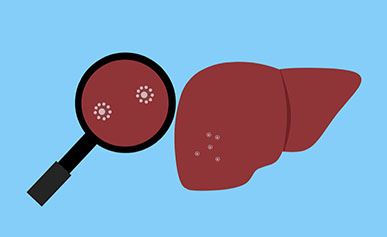What are the effects of using kratom on our liver?
Kratom is one of those herbs you think is a safer, natural substitute for other medicines. But don’t be fooled. Kratom (Mitragyna speciosa) is a Southeast Asian tree that has garnered interest worldwide. The leaves contain mitragynine, which acts similarly to opioids like morphine. Kratom, like opioid medications, has pain-relieving properties and is one of the most popular kratom. There are a few benefits to utilizing it, depending on how much you take and which kind you choose. Low doses of kratom may enhance your energy levels, improve your attention and alertness, and make you more social. Higher doses of kratom tend to have an analgesic (pain-relieving) and soothing effect and produce an overall sensation of well-being. Although there are concerns regarding its daily usage to prevent liver disease, it can certainly help treat other diseases. One should be aware to buy Kratom products from reputable brands like kingdom kratom.

Kratom and its Use
The kratom plant is smoked, chewed, made into tea, and ground into powder for capsules. The drug functions as a stimulant in modest dosages, enhancing energy and decreasing weariness. Larger dosages, on the other hand, may create euphoric effects. Many individuals worldwide have begun to use kratom as a substitute for other illegal substances and treat opiate withdrawal. Kratom has several advantages depending on how much you take and which type you choose. Kratom dependency has long been recognized and recorded despite its traditional medicinal benefits. Because of the growing interest in Kratom extracts in other various countries, scientific study on Kratom and its effects on users has expanded during the last ten years. Due to the long-term usage of Kratom, particularly by day laborers, to increase endurance and tolerate physical labor and hard-working circumstances, both the stimulant and opioid-like analgesic effects may contribute to dependency and addiction. Using it daily has adverse effects in 6 out of 10 people. Moreover, the liver is the main organ affected by its extensive use.
What happens to the liver if we consume Kratom daily?
Kratom is a drug that has variable effects on different individuals, primarily dependent on dose quantities. When taken, the impact usually occurs within ten minutes and lasts around 90 minutes. People claim that a modest amount of these improves alertness and sociability, while more significant dosages have the reverse effect, making them feel sluggish and heavy. Using kratom daily may have unpleasant and perhaps life-threatening long-term consequences.

https://cdn.pixabay.com/photo/2020/10/20/08/46/liver-5669876_960_720.png
Hepatotoxicity
The recreational use of Kratom has been linked to rare cases of acute liver damage. Injury to the liver generally occurs between 1 to 8 weeks of regular kratom powder or pills, with symptoms of exhaustion, nausea, pruritus, and dark urine followed by jaundice. The pattern of liver damage is usually cholestatic or mixed, and it may be severe, with serum bilirubin levels exceeding 20 mg/dL. Acute renal failure and bone marrow toxicity may accompany severe cholestasis. Fever is prevalent, but there is generally no rash or eosinophilia, and autoantibodies are lacking. Cholestasis may be extended, although it typically resolves on its own. In suspected kratom hepatotoxicity, corticosteroids and N-acetylcysteine have been tried, although their efficiency is unknown. Kratom is a prohibited substance in many parts of the nation, and it is regarded as a drug of abuse rather than a nutritional supplement—at least two dozen instances of clinically apparent liver impairment with jaundice. A comparable number has been reported to the Food and Drug Administration’s adverse event database.
Supplemental Side Effects
There is a minimal association between Kratom use and liver damage, albeit there may not gather enough evidence gathered at this time since it is a newer substance. According to the website, researchers released material in 2019 indicating that liver harm is a probable adverse effect of Kratom usage. They looked at 404 instances of liver injury caused by dietary supplements. Eight of the instances, which happened between 2007 and 2017, were linked to Kratom, and the substance was used two to six weeks before the symptoms of liver damage surfaced. Five patients were diagnosed with jaundice (yellowing of the skin), six with itching, five with gastrointestinal discomfort, and three with fever. Because of the unique combination of compounds in Kratom, the short-term effects of the medication are complicated and unpredictable. The quantity determines the balance between stimulant-like and opiate-like effects, and even while taking the exact dosage, different users have had significantly different experiences with the drug.

Source: https://cdn.pixabay.com/photo/2019/12/11/14/34/cannabis-4688511__340.jpg
Effects of Kratom in Moderate to High Doses
Kratom has stimulant-like effects at low dosages (1-5 g). These may be felt in as little as 10 minutes and persist for 90 minutes. While most users think these effects are pleasant, others report feeling nervous and disturbed. Kratom’s stimulant-like effects include increased energy and alertness, similar to amphetamine but less potent. Kratom produces largely opioid-like effects at moderate to high doses that last for many hours (5-15 g). The medication’s euphoric “high” is thought to be less intense than that of other opioids, and some users experience it as unpleasant or dysphoric. Analgesia is another opiate-like function (pain reduction).
- Drowsiness.
- In a dreamy frame of mind.
- Suppression of cough
- Opioid withdrawal symptoms are lessened.
Kratom dosages are more extensive than 15 g cause effects comparable to high opioid doses, including profound drowsiness and, in rare instances, loss of consciousness.
Conclusion
To conclude, this article has served its purpose as a kratom strains guide. People claim that a modest amount of kratom improves alertness and sociability, while more significant dosages have the reverse effect, making them feel sluggish and heavy. The gut and digestive system might slow down when using kratom regularly and long-term. While this isn’t a life-threatening disease, having infrequent, difficult-to-pass bowel motions may be painful. If actions to ease the condition are not performed, this might lead to colon difficulties or even ruptures in extreme situations. Therefore, have a house physician handy if any problems arise. Detecting its usage aids in early diagnosis and treatment and prevents future risks.


